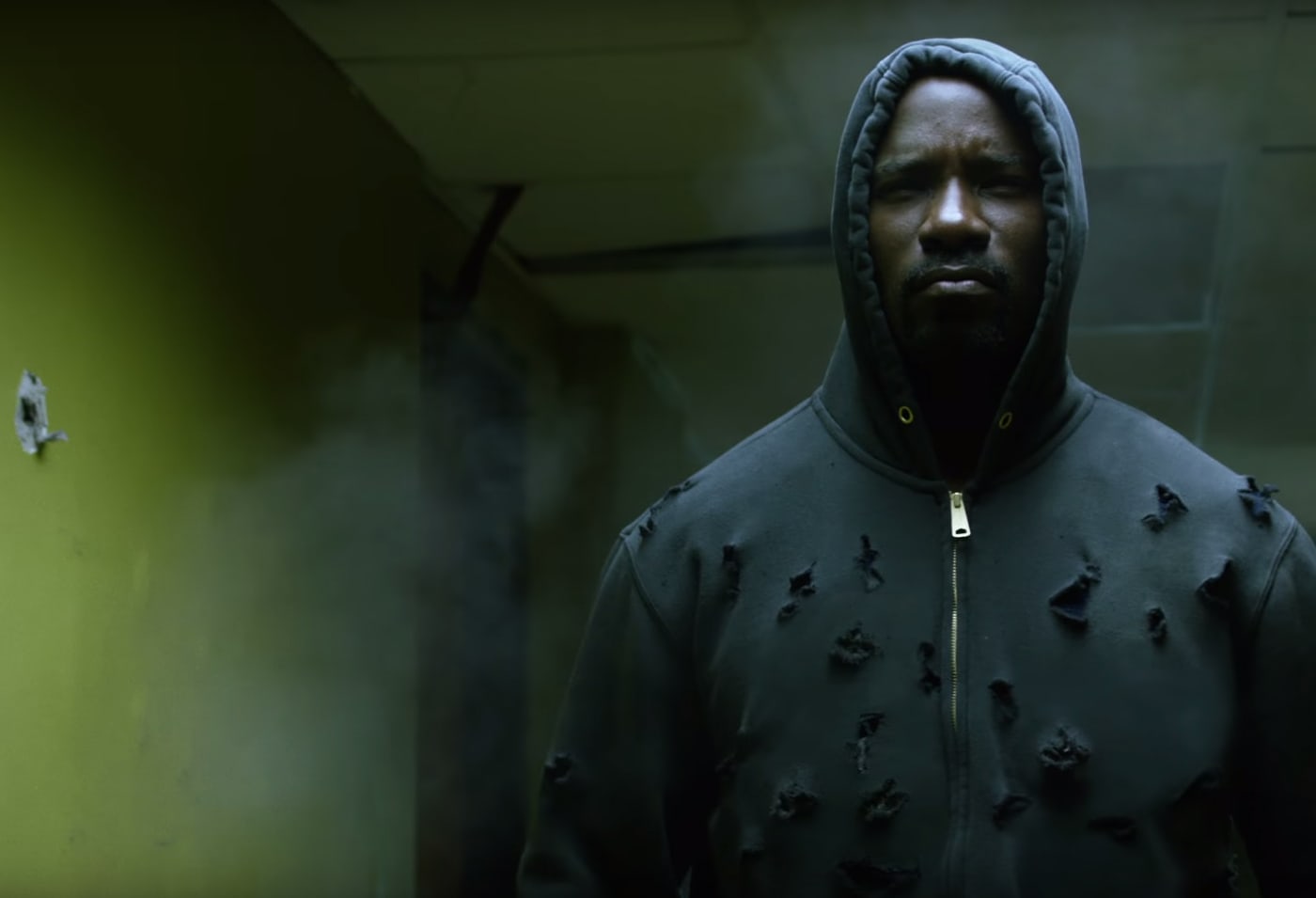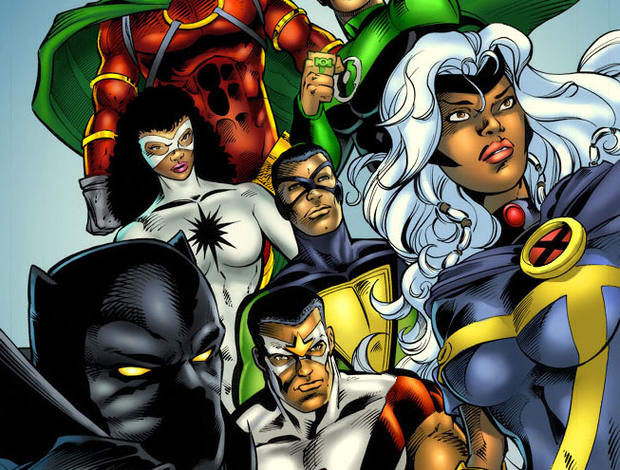There is an intensity in the air when it comes to the arrival of ‘Marvel’s Luke Cage’ on Netflix. This year has been the first year since the inception of original content on the Netflix streaming service that has been focused on providing content to Black Americans. One of my earliest complaints was that while there was a diversity in series such as ‘Orange Is The New Black’ and ‘Frankie & Grace,’ there was yet to be a series that felt like as much of a Black series as ‘Martin’ or ‘New York Undercover’ did in the 90’s on FOX.
Recently, I was asked by a French-speaking Argentinian woman why there had to be spaces for people of different races in America such as a Black magazine or a Black television show. Unfortunately, it was difficult for her to see that stateside, our issues with race have a lot more to do with systematic oppression and a lot less to do and resolve than just us all coming together and working to see each other reflected through one another. There is a large amount of importance in ‘Marvel’s Luke Cage’ and accurate depictions of Black superheroes in general, especially given the failure to do it correctly in previous incarnations.
Take, for instance, Marvel’s X-Men film series, which largely only had one primary Black American superhero of prominence – Ororo ‘Storm’ Munroe. However, unlike within the comic books, Munroe was portrayed by a bi-racial Halle Berry as a character with no real storyline pre-X-Men, except for the fact that she randomly originated from New York, NY.
In the actual foundation of ‘Storm’ and how she came to be, she had a whole life prior to joining the team, the daughter of a princess from Kenya and a photojournalist. Recent films have tried to alter this storyline for more accuracy but still cast women with more European features, erasing the African heritage of one of the most beloved Black superheroes.
This and the marginalization of other Black superheroes such as Spawn, Bishop or Darwin has left many Black comic book fans with a bit of cynicism in regards to how Luke Cage would be handled. However, after witnessing all 13 episodes of the series, the amount of visibility is historic and captures magnificently the culture and style of not only the Luke Cage comic but today’s modern Blackness. The references and light banter are knowledgeable and connected to the Harlem location. Even cameos from Method Man and the Sway in the Morning crew don’t feel forced but instead authentic to how New York City as a whole would react to the knowledge of a bulletproof Black man.
In 2016, the world is beginning to come to grips with, despite how impenetrable the spirit of Black souls are, the commonality of the deaths of Black men and women has left some of us fearful and others even desensitized. We view the loss of a Black life as the start of a hashtag or a discussion or a call for action. There is no savior and it’s disappointing that it took this timing for the coming of age of Black superheroes to emerge and bless us with their abilities. However, it may help shift the tide.
Luke Cage, Black Panther, Deadshot (Suicide Squad), Misty Knight and Falcon are all examples of new fresh faces we’re seeing in 2016, representing saviors for a community under fire. It’s important to see a figure like Luke Cage who is targeted by the police just as Alfred Olango was a few days before the arrival of the Luke Cage series. It’s also important to see a hero like Misty Knight who is a good police officer but also understands the corruptness of the system and fights for justice. Both Knight and Cage can work together, trust each other and understand each other.
It is my hope that this isn’t just a trend but becomes something that we can actually become used to, just as we have with the slew of Black television shows and Black actors and actresses currently on television. There are many kids out there who deserve to see the heroes they know and love reflected on television and in films in unique, innovative ways. There cannot just be a regurgitation of the Peter Parker suburban white archetype just because that’s the easiest way to make money.
We needed Luke Cage just as much as the characters in the show needed him. He may not be a real superhero but there is power and influence in knowing that a Black man can be anything he wants to be including someone with superhuman strength. Looking at how Cage walks around with a hoodie, emblazoned not with a standard superhero badge but the holes from bullets that ricochet off him, stands taller than any impenetrable armor can.
Marvel is beginning to see the power in doing things a bit differently and listening to the calls of the fans for once. I, as a Black LGBT comic book nerd, couldn’t be any happier.


